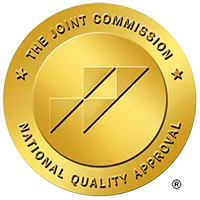To those of us in the field of addiction treatment, the switch to heroin and other prescription painkillers came as no surprise. That’s because, as I’ve described in previous posts, treating addiction is like a game of Whac-a-Mole. Take away one drug, another pops up in its place.
Changing supply does little to change demand when it comes to drugs of abuse. Why? Because addiction is a chronic brain disease that changes the function of the brain, and because people often use drugs to cope with painful emotions. Neither of these problems is cured by making drugs less available.
Few drug abusers are “sold” on just one drug. Most are opportunists who, driven by the changes that occur in the brain, will use whatever drug they can get their hands on to feel better. Heroin is a seemingly attractive option because it is cheaper and more readily available than OxyContin and other prescription painkillers.
One Step Forward, Two Steps Back
Unfortunately, heroin is also extremely dangerous for the individual and a much greater overall risk to public health than OxyContin. Users have to take it more frequently, rarely know the purity of what they’re taking (which increases the risk of overdose), and often end up engaging in high-risks behaviors like needle sharing and criminal activity to fund their habit. What’s more, they’re out of touch with the medical system. Instead of dealing with doctors, they’re scoring from street dealers.
Since some OxyContin users have switched to other prescription painkillers, experts are calling for additional slow-release formulations that can’t be abused. Of course, true to the nature of addiction, users would simply turn to heroin and other opiates. We saw this happen when an abuse-resistant form of Opana (oxymorphone) was released, which predictably prompted a switch to other opioids rather than a cessation of drug use. If addicts run out of prescription drugs, they’ll turn to heroin or other illicit substances. If they run out of illegal drugs, they’ll find someone synthesizing bath salts, synthetic marijuana or some other manufactured high.
Similar to drug reformulations are efforts to create an addiction vaccine. After nearly 40 years of research, scientists are getting closer to a vaccine against a number of addictive substances including heroin, meth, cocaine and nicotine. For some motivated people, vaccines may be an adequate deterrent from continued drug abuse. But for most addicts, even if these vaccines prove effective in blocking the pleasurable effects of certain drugs, they will not prevent users from circumventing the vaccine by taking extremely high doses, failing to comply with vaccination schedules, or switching to other drugs or compulsive behaviors. While vaccines rightly approach addiction as a medical disease, they simply cannot address the mental, behavioral and spiritual issues that led to addiction in the first place.
Getting Back to What Works
People aren’t going to stop using drugs because we change the formulation. They aren’t going to quit because we create harsher drug laws. Even a vaccine won’t put an end to drug abuse. What will make drug abuse a thing of the past? The same solutions that apply to other chronic illnesses: prevention and long-term treatment that addresses the underlying issues that fuel the need to self-medicate with drugs.
Instead of criminalizing addiction, encouraging doctors to stop providing care to people who may be addicted to prescription drugs, and focusing the majority of our research and resources on finding new formulations, vaccines and pills to defeat people’s attempts to get high, we need to address the much deeper issues at work in addiction.
Dr. David Sack is board certified in psychiatry, addiction psychiatry and addiction medicine, and writes an addiction blog. As CEO of Elements Behavioral Health, he oversees addiction and mental health treatment programs at Brightwater Landing treatment center in Pennsylvania and The Sundance Center in Arizona.
Copyright 2016 PsychCentral.com. All rights reserved. Reprinted here with permission.
Original Article from PsychCentral.com
Red Rock Recovery Center is a Colorado state licensed substance abuse extended care treatment program designed to help you or your loved one recover from the struggles associated with alcoholism and drug addiction. Located in Denver, Colorado we offer a safe haven for those afflicted by the ravages of untreated addiction. Our program is based on a compassionate 12-step model that applies behavioral as well as life skill therapies, which will enable our clients to heal and recover.
#recovery #drugrehab #redrockrecovery




